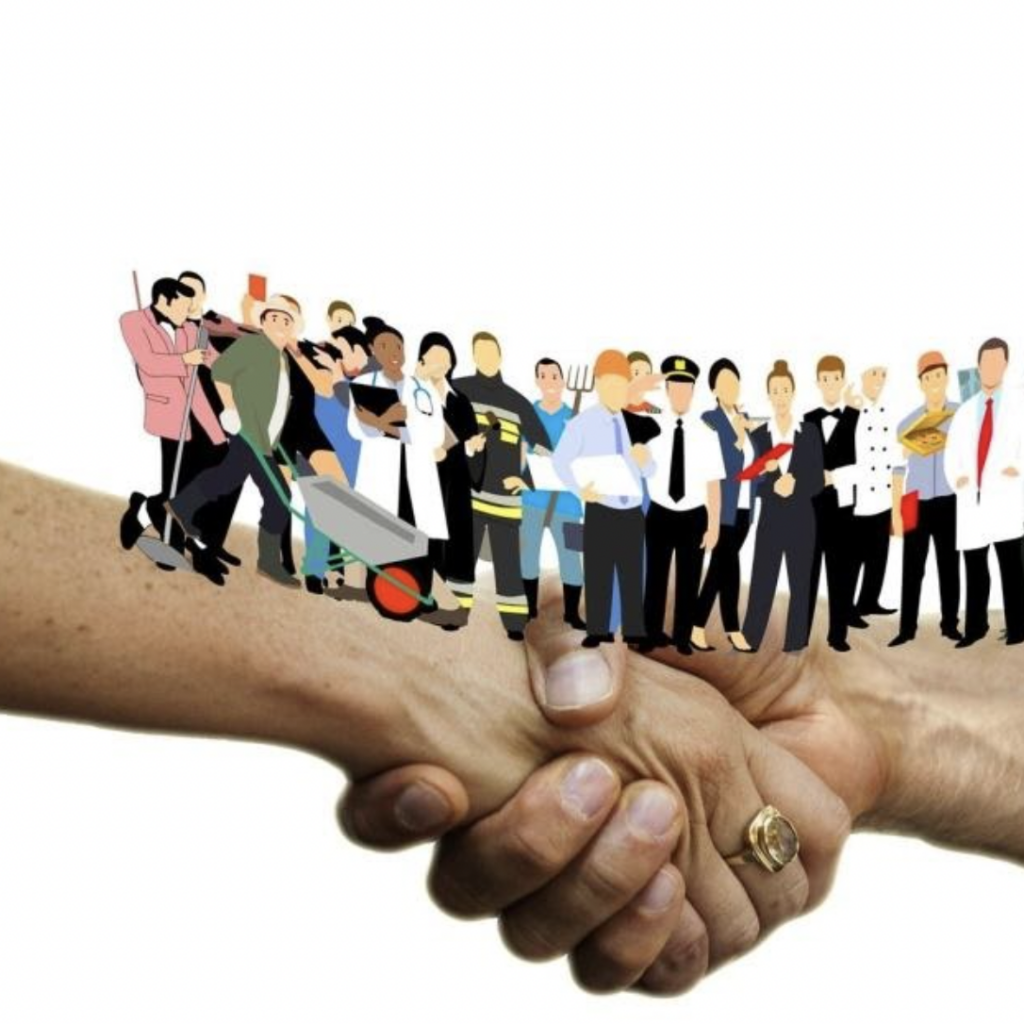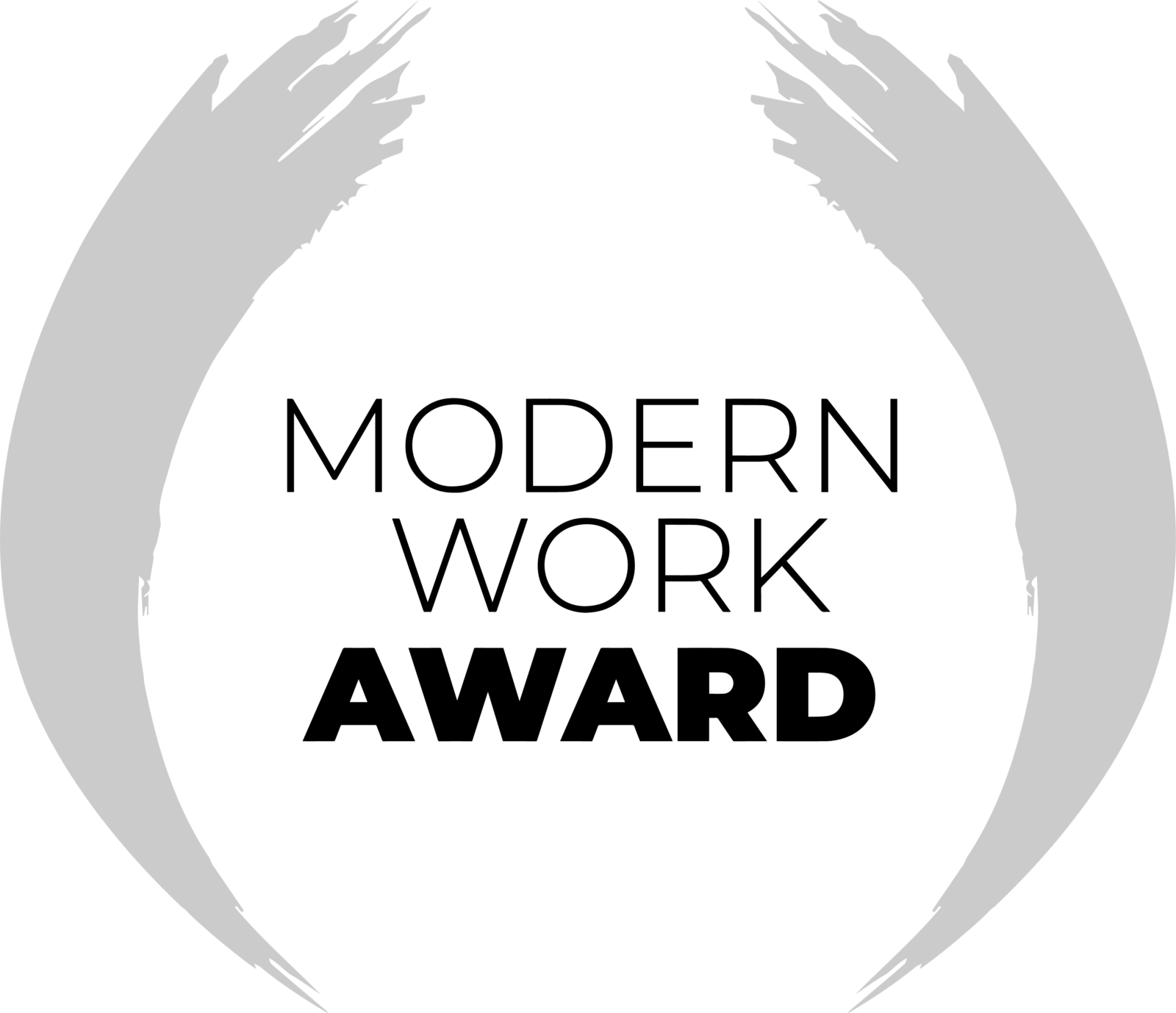A resilient team or company is well equipped to weather any kind of challenges. Just as burnout needs to be understood in its systemic context, building resilience is not a private matter, either. Designing a safety net against losing sight of the employees and their needs can be an integral part of company culture.
“Modern Work”, “New Work” – does this mean “employee well-being” and nothing more? Losing sight of performance, indulging in buzzwords? It is worth investigating whether humanizing the workplace necessarily means becoming less success-oriented or if a “people first” approach can be a sustainable path towards high achievement.

Do we want to approach the challenges of work as lone warriors?
Or do we want to cooperate in new ways?
“We are not social services”, “If you can’t stand the heat, leave the kitchen”, “What doesn’t kill us makes us stronger” – do these slogans sound familiar? If similar claims can be heard in your company on an everyday basis, chances are you will question the mindset because you know about its consequences. Many will even quit because this kind of culture seems toxic to them, counterproductive for quality of life and work.
But whoever has experienced a different way of working, after some time in traditional companies, will likely be surprised by themselves:
- feelings of bonding and commitment will be strong – headhunters can’t lure you away easily
- work-life balance loses its importance, because work is no longer a place of toil and hardship, but a realm of creativity and self-efficacy
- you feel psychologically safe, mistakes are met with a “growth mindset”
- you don’t need to be persuaded to co-create, it comes easy to you
- you find yourself interested in the company’s strategy and policies, and feel invited to exert influence on them.
Companies of that kind are usually magnets for high achievers with an interest in quality of life and longevity, and with a passion for quality of work in the long term. Nowadays, we have a market driven by well-trained experts, not by employers. The former will be able to choose between more or less progressive organisations. The latter will lose their best people if they do not provide them with adequate support and opportunities to participate and co-create.
What does “resilience” mean after all?
A young, well-trained athlete who feels excellent and has never experienced any real challenges with regard to health or personal issues – would you call him or her resilient? Or simply “strong”, “fit”, “efficient”? Quite logically, resilience needs the presence of a threat, a stress test. The term was coined in materials science, meaning that a fabric can withstand stress (for example, by resiliently bouncing back after an impact).
Resilience in tune with fundamentals of “modern work” does not mean becoming capable of enduring unacceptable conditions. “If you’re going through hell, keep going” may be a valuable maxim in the short term. But too many staffers live a life they never desired until they reach retirement age. Frequently quoted are the greatest “regrets of the dying”, according to Bronnie Ware, the first being: “I wish I’d had the courage to live a life true to myself, not the life others expected of me”.
Being resilient can mean to stand up for yourself (and the people entrusted to you) and fight for improving working conditions. It can also mean to choose the “humane” workplace, even if the pay is lower than at a competing company. And it can mean to open up about challenges you are experiencing, because you trust your team that they will not exploit a temporary “weakness”, but offer you all the support they can.

Resilience: strength in the face of adversity
“What protects us makes us stronger”
Not only individuals, but also whole teams, departments and enterprises can become exhausted and lose energy in a way that cannot be easily restored. It seems wise to not shut the stable door after the horse has bolted but to think about preventing conflict and burnout before damage has happened.
Increasing organisational resilience by supporting a culture of dealing well with conflict: what does that include? First, it means the ability to notice tensions as early as possible. Awareness for these early signs can be learned. Then, people involved need to know they are welcome with everything they bring to the table: conflict, brought to the surface, can be an excellent source of revelations about the company, about possible flaws in practice and strategy, and areas where growth is needed.
“A good half of the art of living is resilience”, is a famous quote by Alain de Botton. In the same logic it can be said: a good half of the art of leading a company is supporting its people in order to let them grow into their full potential. The pandemic has left applicants and staff hungry for their needs to be met: word has gotten around that there are employers interested in participation, value-based communication, purpose-driven leadership and fostering a growth mindset. Hyper-traditional organisations will find it increasingly difficult to attract high performers: independent, autonomous personalities who live by the motto: “Don’t motivate me, just -diligently!- eliminate the things that demotivate me”. (According to the latest motivational research, this is actually enough).
Fostering resilience builds a safety net
One of the principles of modern work, “people-first approaches”, states: when in doubt “whether a decision is good for the people or for power, one should be guided by the decision close to the people”. It is strongly related to the principle of sustainability: an organization which genuinely cares for their people will not only earn their commitment, but also prevent losing valuable skills due to exhaustion, illness or career choices against the company. This simply also means saving time and money.
Imagine a company supporting the co-workers’ courage to live a life true to themselves – wouldn’t it go without saying that they would never want to leave? Wouldn’t they do everything they can to support the company’s goals in return? Cultivating organisational resilience can be a true win for all sides, and the company itself will become more and more resilient against any external and internal threats. This way, the “future of work” will not stay a dream, but a place you can build and inhabit, a reality that can become a home for the most creative personalities – a place worth being invited to!
_________________
Written by Antonia Anderland
Antonia Anderland has been a systemic business consultant, mediator and business coach for more than 20 years. She focuses on the prevention of conflict and burnout, coaching teams and C-level executives.
